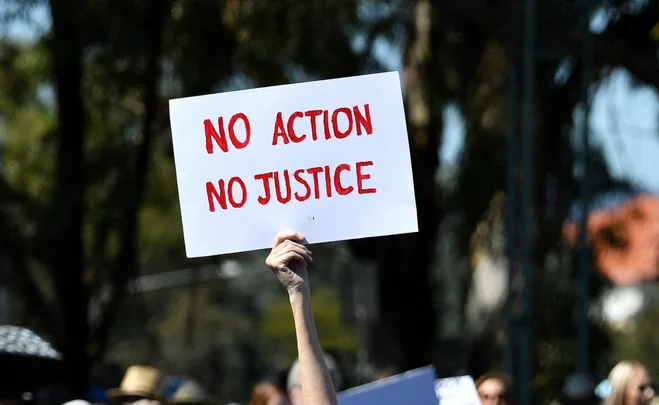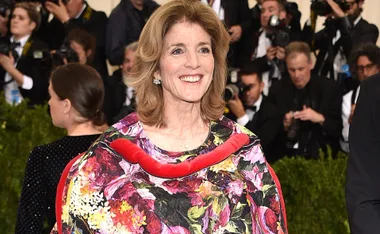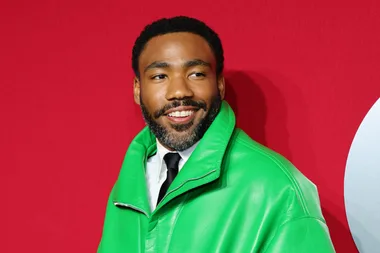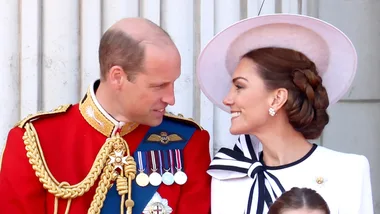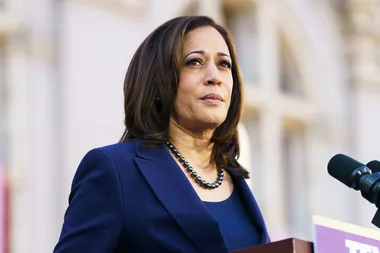Over the last few years in Australia, the fight for womens rights and safety has gained significant momentum—it’s long-awaited and long overdue.
In 2021 and 2022, women and allies across Australia took to the streets in the March 4 Justice, demanding the basic right to feel safe at work, home and on the streets. Chanel Contos also sparked a new movement by petitioning to have consent education built into the school curriculum. Grace Tame, an advocate and victim survivor of childhood sexual assault, led a whole reckoning of women calling for better support, better policies, and, most importantly, to simply have their voices heard.
Earlier this year, an independent review found that one in three staffers in federal parliament had experienced sexual harassment. Not long after, the problematic finding was echoed across Australia in an ABS survey, which found that 53 per cent of women across Australia (out of the five million surveyed) had encountered sexual harassment.
To add, the Workplace Gender Equality Agency released its annual report on the gender pay gap in August 2021—troublingly, the gap had grown. As it stands women earn $261.50 less per week on average, compared to men.
It all comes back to one very clear message: Australia has a gendered violence and inequality problem, so what is the government doing about it?
On May 21, the country will decide exactly where we go from here (and with any hope, it’ll be with a lot more momentum and support than what we’ve had). Prime Minister Scott Morrison and leader of the opposition Anthony Albanese have promised and committed to providing support mechanisms in order to tackle the issues women face—keep scrolling as we deep dive into how they each stack up.
READ MORE OF OUR ELECTION COVERAGE:
- A Breakdown On Where The Labor & Liberal Party Stand On The Cost Of Living & Housing
- A Breakdown Of The Labor And Liberal Policies On Climate Change
- Meet The Independent Women Who Could Change Australia
- Feeling Uninspired About Voting? Political Editor Samantha Maiden Has Some Advice
- Life Before Leading The Opposition: Anthony Albanese’s Rise To The Top
- Everything You Need To Know About Scott Morrison’s Family & Career
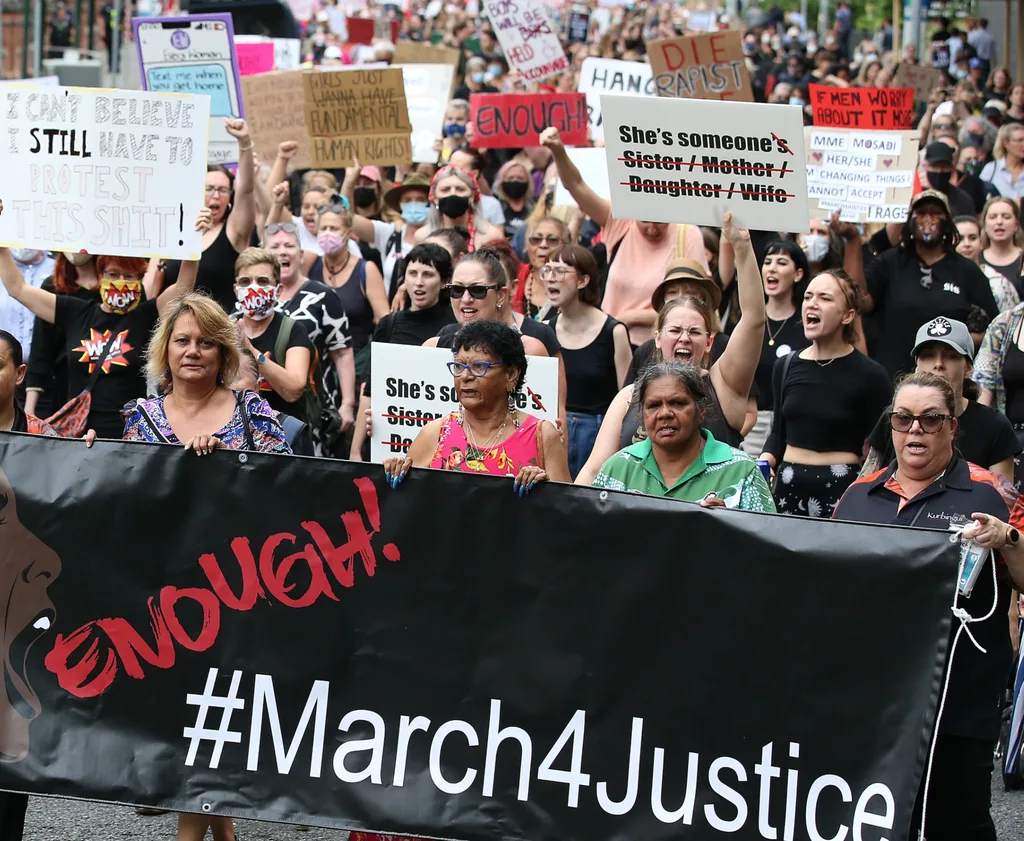
Scott Morrison, the Libs and support for women
When Sex Discrimination Commissioner Kate Jenkins revealed the shocking findings from that parliamentary review revealing the extent of sexual harassment and assault in parliament, Scott Morrison had no choice but to step up and say something.
The PM told media he was “appalled”.
“I wish I found it more surprising,” he said, adding that while the working environment of the government can be stressful, “This is no excuse to normalise inappropriate, unhealthy and unprofessional behaviour.”
But were these comments enough? The review gave several key recommendations to the federal government to enact, including setting targets to achieve gender balance among parliamentarians and parliamentary staff. It also recommends for governmental progress to be publicly reported.
So where do the Libs stand on this?
In its webpage dedicated to issues affecting women, the parties policies set out that it would, “Support women to be safe at work and home.”
It’s not a particularly detailed account of how they’ll actually do this, so we took a closer look at what they’re actually doing and offering for women’s safety.
Firstly, the Libs have set the wheels in motion on the National Plan to End Violence Against Women and Children (more about the plan’s rocky start here), which includes a $2.5 billion investment in the first five years. This money will be directed at prevention, early intervention, response and recovery.
The Libs have also committed to expanding the role of the e-Safety Commissioner in order to better cover issues such as image-based abuse, and other ways sexual harassment can occur online.
The Morrison Government has also promised to introduce the country’s first National Domestic, Family and Sexual Violence Commissioner, no doubt as a response to the recommendations set out in the review.
It has also bid $16.6 million to go towards a telephone service which would support women and children who have or are experiencing abuse which is technology-facilitated.
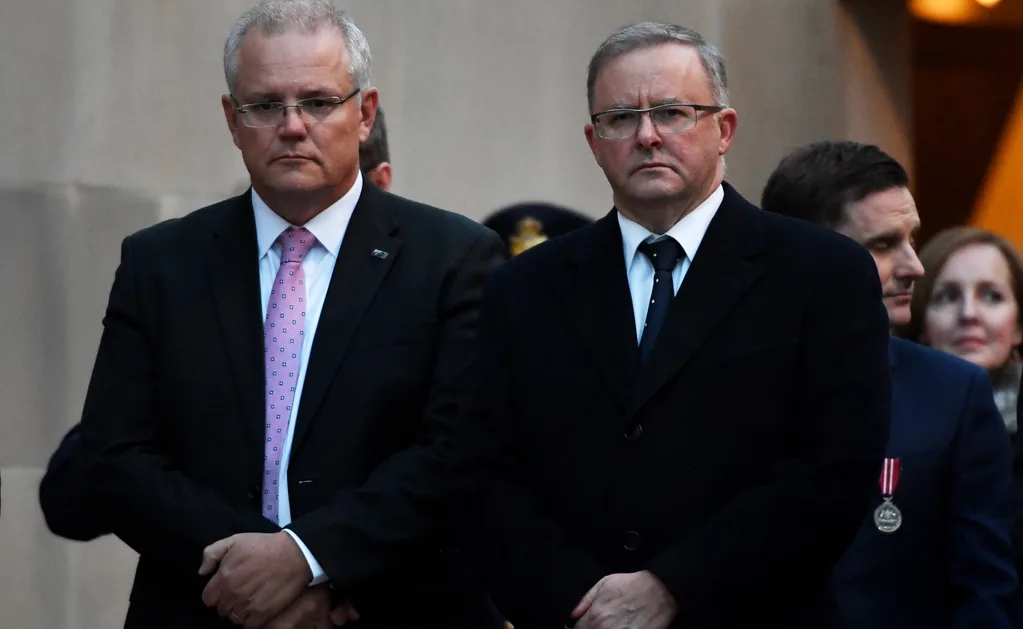
Anthony Albanese, the Labor party and support for women
Albanese has put a major focus on achieving gender equality for women in his policies, previously telling The Sunday Age: “If you lift up the economic status of women, you lift up the entire national economy.”
Albanese plans to pass laws to impose “positive duty” on employers, which is aimed at ending sex discrimination and sexual harassment, as well as making equal pay an objective in the Fair Work Act.
The Labor party has also committed to 500 new community sector workers, 50 per cent of whom would be stationed in rural and regional communities.
Like the Libs, Labor also plans to enlist a new Family, Domestic and Sexual Violence Commissioner, who would speak for victim-survivors of sexual assault.
The Labor government has also long been calling for 10 days paid annual leave for every employee who has experienced domestic violence. On May 16, the Fair Work Commission passed down a decision which would see some six million Australians under awards entitled to this. The Labor party would like to see everyone entitled to this.
Under an Albanese Government, Australia has also been promised a $100 million boost towards crisis accommodation, as well as a $1.6 billion boost towards building 4000 social housing properties for women and children who escape domestic and family violence situations at home.
Labor has also pledged $79 million which would go towards justice reinvestment for First Nations communities—this is aimed at providing early intervention support, in turn reducing family violence, as well as decreasing incarceration rates.
Albanese has also put focus on childcare, pledging $11 million in funding for free playgroups in rural and regional areas.
